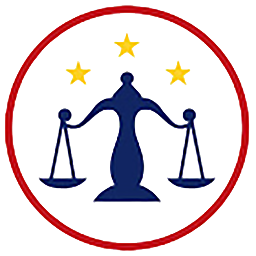What is a Last Will & Testament?
A last will and testament, commonly referred to simply as a will, is a legal document that allows an individual to express their wishes regarding the distribution of their assets, property, and personal belongings after their death. A will can also designate guardians for minor children and specify funeral or burial arrangements. By creating a will, individuals can have greater control over how their estate is managed and ensure that their loved ones are cared for according to their wishes.
Legal Requirements for a Will in Canada
While the specific requirements for a valid will may vary depending on the province or territory, some general principles apply across Canada:
- Age and capacity: The testator, or person creating the will, must be at least 18 years old and have the mental capacity to understand the nature and consequences of their actions.
- Written document: A will should be in writing, either typed or handwritten.
- Signature and witnesses: The testator must sign the will in the presence of two witnesses, who must also sign the will. Witnesses should not be beneficiaries or spouses of beneficiaries, as this may invalidate the gift to that beneficiary.
- Clarity and specificity: The will should clearly state the testator’s intentions and provide specific instructions for the distribution of assets and property.
Creating a Last Will & Testament
When drafting a will, it is advisable to seek the guidance of an experienced estate planning lawyer to ensure the document is legally valid and accurately reflects the testator’s wishes. At JCA Law Office, our team of lawyers is well-equipped to assist clients in preparing a comprehensive and legally enforceable will, keeping in mind the unique cultural factors that may affect Filipino individuals and families.
Cultural Considerations for Filipino Testators
While the legal aspects of creating a will apply to everyone in Canada, it is essential to recognize the unique cultural factors that can impact Filipino testators during the estate planning process. Some of these considerations include:
- Family dynamics: Filipino families often have strong connections and complex relationships. When drafting a will, it is crucial to consider the needs and expectations of various family members, as well as the potential for conflicts or misunderstandings.
- Cultural values: Filipino cultural values, such as respect for elders and family unity, may influence decisions regarding the distribution of assets and property. It is essential to incorporate these values while still adhering to Canadian legal requirements.
- Language barriers: For some Filipinos, language barriers may make the estate planning process more challenging. At JCA Law Office, our team of Filipino lawyers is fluent in various Filipino languages, ensuring effective communication and understanding of the legal process.
Conclusion
Creating a last will and testament is a critical step in protecting your assets and loved ones after your death. At JCA Law Office Professional Corporation, we are dedicated to providing culturally sensitive and personalized legal services to the Filipino community in Ontario and across Canada. If you need assistance with creating a will or any other estate planning matter, please contact us for a consultation. Our team is here to help you secure your legacy with confidence and clarity.
Recent Blogs
Complete Guide to the Process of Extrajudicial Settlement of Estate in the Philippines
Disclaimer: This article is not intended to provide any legal advice. If you need legal advice, consult with a legal professional such as a lawyer...
Wills And Powers of Attorney Promo
You may visit our office at 168B Eglinton Ave. East, Toronto, ON M4P 1A6 (street-level), just several steps away from the building where the...
Why last will, power of attorney for property & personal care and health care directive (living will) matters?
Why last will, power of attorney for property & personal care and health care directive (living will) matters? By Gin Aguilar It can be the...
Need A Consultation
Tell us about your legal matter, and we’ll tell you how we can help.



